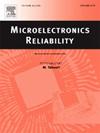The impact of mold compound on power cycling capability of SiC MOSFETs in double sided cooled modules
IF 1.6
4区 工程技术
Q3 ENGINEERING, ELECTRICAL & ELECTRONIC
引用次数: 0
Abstract
The impact of the mold compound on the power cycling capability of semiconductor devices is a decisive factor for their lifetime. Previous studies on discrete devices showed up to five times higher lifetime with mold compound [1]. In this work, the influence of the mold compound was experimentally investigated on double sided cooled modules (DSC). Half-bridge modules with SiC MOSFETs were tested under similar conditions with and without mold compound. As there are no source bond wires in the analysed DSC modules, particular attention was paid to the resulting failure modes. The DSC modules with mold compound showed only slight traces of ageing after the test. In the DSC modules without mold compound, previously defined end of life (EoL) criteria were reached and the failure analysis showed clear signs of degradation mainly in solder layer S2 due to the power cycling test (PCT) at the front-side interconnection between spacer and chip. A positive impact of the mold compound on the DSC module was concluded.
求助全文
约1分钟内获得全文
求助全文
来源期刊

Microelectronics Reliability
工程技术-工程:电子与电气
CiteScore
3.30
自引率
12.50%
发文量
342
审稿时长
68 days
期刊介绍:
Microelectronics Reliability, is dedicated to disseminating the latest research results and related information on the reliability of microelectronic devices, circuits and systems, from materials, process and manufacturing, to design, testing and operation. The coverage of the journal includes the following topics: measurement, understanding and analysis; evaluation and prediction; modelling and simulation; methodologies and mitigation. Papers which combine reliability with other important areas of microelectronics engineering, such as design, fabrication, integration, testing, and field operation will also be welcome, and practical papers reporting case studies in the field and specific application domains are particularly encouraged.
Most accepted papers will be published as Research Papers, describing significant advances and completed work. Papers reviewing important developing topics of general interest may be accepted for publication as Review Papers. Urgent communications of a more preliminary nature and short reports on completed practical work of current interest may be considered for publication as Research Notes. All contributions are subject to peer review by leading experts in the field.
 求助内容:
求助内容: 应助结果提醒方式:
应助结果提醒方式:


